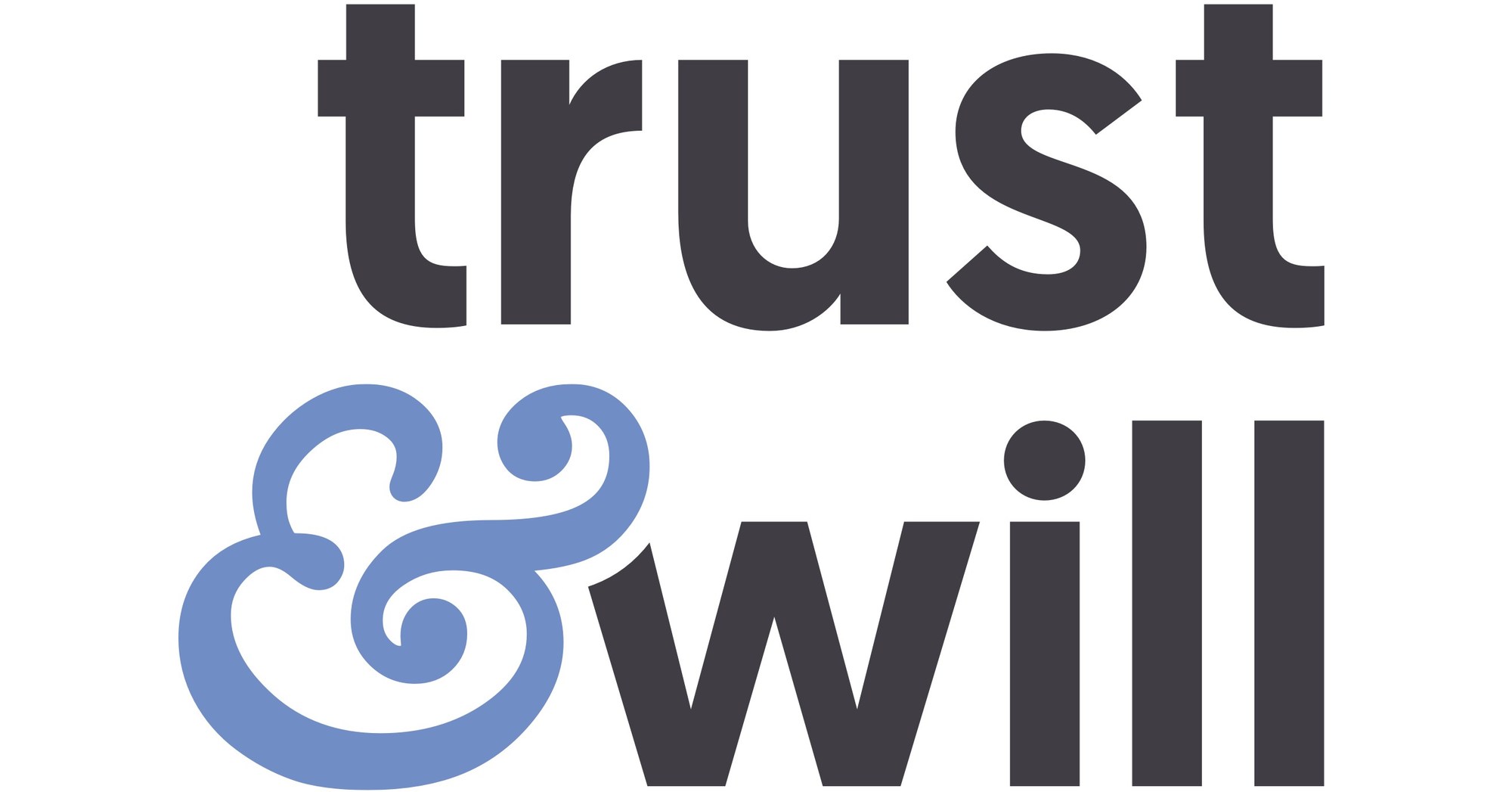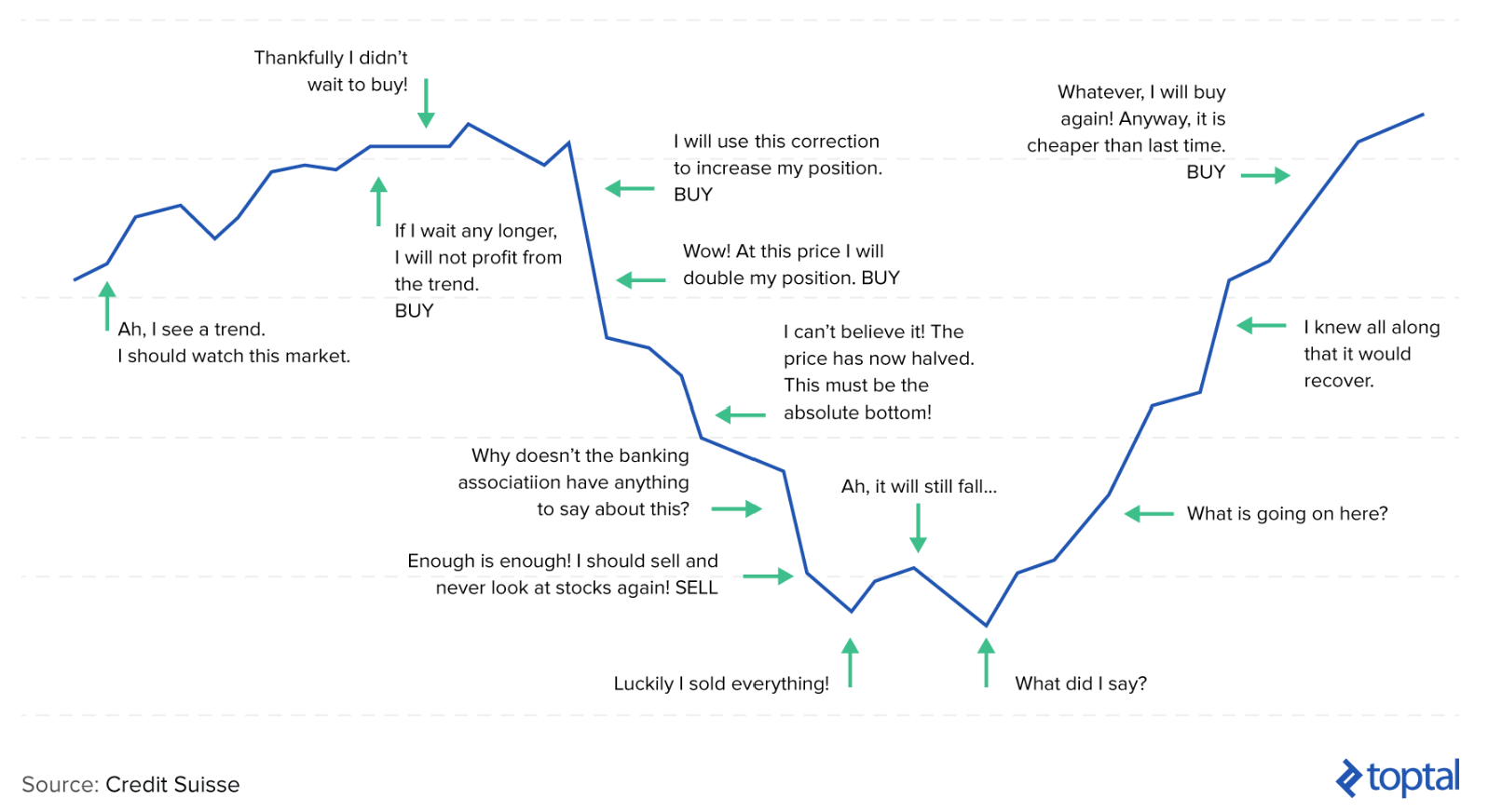TOGETHER WITH  | Happy Thursday. As global markets whipsaw from one day to the next, here's a quote from Benjamin Graham, author of The Intelligent Investor: "The investor’s chief problem—and even his/her worst enemy—is likely to be him/herself." Follow the 🌊 below for more on investor psychology and the visual rollercoaster of emotions that ensues when markets act as they are now. And here are the money topics du jour: - Why is commercial real estate booming if people are working from home?
- Dollar cost averaging—the pros and cons
- How safe is your crypto really?
| |
MARKET OUTLOOK Why Is Commercial Real Estate Booming If People Are Working From Home? |  | | Giphy—Professor Robert Kelly in a BBC Interview | | | Working remotely was already becoming more and more realistic, but then the pandemic came along and massively accelerated that trend. Office buildings closed, businesses cut jobs, and those who still had jobs were often told they could, should, or must work from home. So, if that’s the case, why haven’t we seen investments in commercial real estate track along with less demand for such spaces? Businesses are seemingly not loosening their grip on life at the office, no matter what Airbnb says. The dynamics: remote work vs. commercial prices - Remote work—uptick: The number of people working remotely has increased by almost 16x since 2009, and 44% of that growth has come in the last 5 years.
- Remote work—market share: 16% of all companies globally are estimated to be fully remote, 58.6% of the total US workforce are now remote workers, and by 2028, 73% of all departments are expected to allow some form of remote work.
Okay, we get it, remote work is on the rise and unlikely to ever regress, but what do large businesses have to say about that? - Growing “work campuses”: Meta, Google, and other big name companies are still expanding their physical presence while commercial vacancy rates remain low in cities across the country.
- Commercial prices: Green Street’s commercial property price index was up 24% in 2021, and has risen by 35% from its 2020 low.
So, what are we missing then? It’s hard to draw a clear conclusion without some more data, but here are a few things to note: - Remote work isn’t always a success: Although 2020 might’ve finally given us license to realize it’s okay to do a lot of work remotely, there are also some personalities, family situations, positions, tasks, and industries that might suffer from such an approach. Although some needs can be answered outside the office, hybrid models are popular as well. Workers are mainly pleading for autonomy and flexibility.
- Property type matters: Much of the commercial real estate being snapped up right now is tied to distribution and distribution centers, which are somewhat of an indicator that remote work/life and e-commerce are on the rise—not exactly an indicator that people are heading back to the office, but that different types of commercial space are in demand.
- Businesses still need space: Not all work can be done remotely though, and that will depend not only on the industry or sector a company is in (i.e., labs, R&D heavy tech companies) but also on the type of culture a company may be looking to build and promote. And with things opening back up after the pandemic, many businesses, including SMEs (small to medium enterprises), are finally able to expand again.
| | | |
INVESTING Dollar Cost Averaging—The Pros and Cons | | | | Dollar cost averaging can be loosely defined as systematically investing equal amounts of money over a period of time, opposed to just plopping a lump sum of money into the market at once. It’s quite likely the single most popular method of investing out there, and a reliable way to progressively invest your way towards retirement, or any other long-term financial goals you may have. It’s often assumed to be the gold standard of investing, so let’s take a closer look at this assumption and share some of the benefits and drawbacks of this renowned practice. The ideology The term dollar cost averaging was first coined by Benjamin Graham in his book titled “The Intelligent Investor” and has therefore been around for over 70 years now, but its popularity has increased consistently over the last few years. Google search trends for term "dollar cost averaging" 
The benefits - Objective and mechanic: When you invest in a DCA fashion, no thinking is needed. You simply determine a set amount based on your net worth, income, and cash, and deposit it routinely into the investment(s) of your choice. Or even better, just set up auto-transfers. It reduces the time spent trying to strategize and find the best time, place, or amount to invest, creating an overall more serene experience.
- Mitigating the downside: If you had $100,000 to invest and you’d put it all into a total stock market index fund like $VTI on December 31st, 2021, you’d now have just about $81,000 left, so that sucks. However, if you had instead decided to invest $5,000 a month, your losses would be much less precipitous, because a gradual investment reduces the probability that you would invest at a market high. This can have real benefits, especially for those who may need those funds or are looking to retire soon. No one wants to lose 20% of their nest egg 6 months prior to retirement.
Potential drawbacks - Missing out: The main drawback is pretty straightforward in most cases. When you put off investing more than you can, you risk missing out on the extra capital gains and compounding benefits if the markets were to rise. Someone who invested $10,000 of their $100,000 before a 20% run-up would make only $2,000, while the investor who put in all $100k would’ve made $20k.
- Being too passive: While passivity is a big part of the allure with DCA, it can also come at your own expense if the underlying investments are too lazily chosen. Averaging won’t ever make up for lackluster asset allocation, and no matter how passively we invest, dedicating time to making prudent choices will always pay off.
Our take: Whether or not dollar cost averaging is right for you and your portfolio depends entirely on you, your situation, preferences, and more. For most investors though, it’s a suitable method, and far more responsible than not investing at all, which is perhaps the riskiest route to go. 🧷 And here's a related lesson on this topic: | | | |
FEATURING TRUST & WILL Estate Planning Made Easy | | | | Estate planning can be a daunting task. At Trust & Will, their top goal is to make the process of setting up your will, trust or nomination of guardianship as simple and straightforward as possible. - With plans starting at $39, they’ve got something for everyone.
- Get a complete and customized Estate Plan online in about 15 minutes.
- They are rated 4.9 out of 5 stars on Trustpilot.
By giving attention to your future and your children or your beneficiaries' future, you can live more in the present because you know no matter what, your finances are in order and in proper alignment with your desires. That means your children, pets, assets, future, and legacy will be handled the way you want. Make sure your family is covered. 
| | | |
CRYPTO How Safe Is Your Crypto Really? | | | | The budding crypto industry is under perpetual scrutiny, and as a nascent market it arguably should be. By critiquing it, we’ll inevitably uncover some important cracks in the infrastructure, and it seems that we might’ve just found another. Coinbase, the industry's largest and most popular crypto exchange, recently acknowledged in their quarterly filings that, in the event of a bankruptcy situation, the coins that they hold for their users may not be safe from seizure. This brings up a couple of things to note - Safety as a whole: For one, those who use Coinbase or any other similar exchange are already at risk of losing their assets in the event of a hack to their personal account, because the crypto itself is not insured the same way as dollars held on the exchange. By contrast, up to $500K is insured in traditional brokerages. This new omission leads to another layer being added to those concerns.
- Crypto’s divergence from brokerages: In a traditional brokerage account, the securities that you hold in that account are not property of the brokerage firm itself and are legally segregated specifically for this reason, to avoid being the subject of bankruptcy proceedings. On Coinbase though, crypto assets are technically speaking, company property. This is a potential “crack” for the centralized exchange, and it remains to be seen whether or not that’ll ever be patched.
- Let’s not overreact though: Headlines like this, and even the real concerns just mentioned, can often cause an overreaction in fear. Although valid concerns, let’s also remind ourselves that these obscure, unlikely risks don’t mean the demise of Coinbase or even crypto at all. With exchanges like these, your cash is insured, and they even have crime insurance in case of a complex heist. So yes, there are still some chinks in the armor like this one, but it might not be the end of the world.
| | | |
🔥 TODAY'S MOVERS & SHAKERS | - Target (-4.6%) and Walmart (-1.77%) after both retailer's stock price experienced their worst 1-day drops since 1987. Both company's earnings were well below analysts' expectations due to skyrocketing costs.
- Under Armour (-11.6%) sales have fallen by 50% since Patrik Frisk became CEO in early 2020; Frisk will step down as CEO on June 1 and COO Colin Browne will then take the reigns.
- Synopsys (+11.3%) as the design automation software company reported better-than-expected quarterly profit and revenue figures while also sharing upbeat future guidance.
- Bitcoin (BTC) +2.6% to $30,244.66 over the last 7 days
- Ethereum (ETH) +0.8% to $2,021.17 over the last 7 days
This commentary is as of 9:15 am PDT. | | | |
🌊 BY THE WAY | - 🎢 The Rollercoaster of Emotions—Why Investors Are Irrational (Toptal):

- 🪄 ICYMI. The rule of 72—a simple math trick (Finny)
- Finny lesson of the day. Review the basics of estate planning: What is it and should you consider it?
| | | |
|
What did you think of Finny's The Gist today? (Click to vote)
| | | |
| Finny is a financial education platform on a mission to make your money work for you. We offer a customized financial learning platform through bite-size, jargon-free lessons, money trends & insights to teams & companies. The Gist is Finny's twice a week (Tues & Thurs) newsletter covering personal finance & investing insights and money trends. Finny does not offer investment and stock advice or endorsements. The Gist content team: Austin Payne, Othmane Zizi, Chihee Kim. We're thankful for our mission-aligned sponsor—Trust & Will—and their support as they make rewards on our platform possible. If you're interested in sponsoring The Gist, please reach out to us. And if you have any feedback for us, please contact us. | | | | | | | |